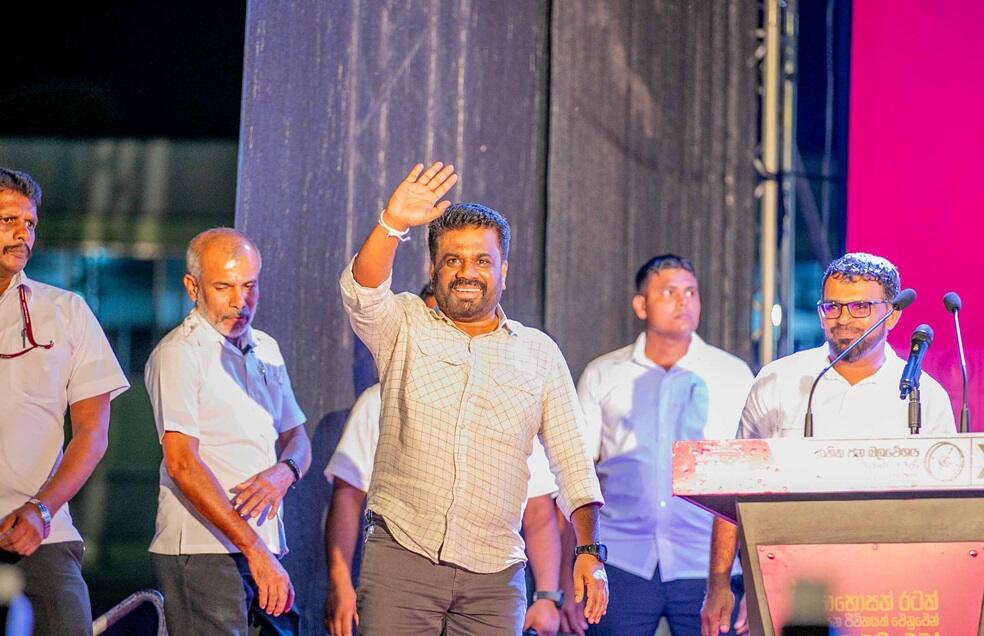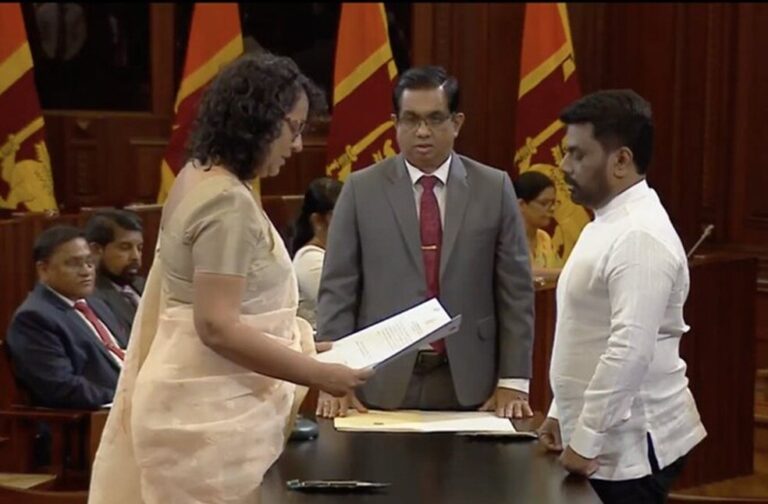Colombo: Sri Lankan President Anura Kumara Dissanayake has reappointed Harini Amarasuriya as Prime Minister.
The significant move signals commitment to continuity in leadership as the island nation begins to recover from a severe economic crisis. Dissanayake, whose leftist coalition won a commanding 159 out of 225 parliamentary seats in the general election, also reappointed veteran lawmaker Vijitha Herath to head the Foreign Affairs ministry.
The president’s decision to retain the finance portfolio for himself marks a continuation of leadership approach since September, following his presidential victory.
Sri Lanka’s President Anura Kumara Dissanayake today appointed a Prime Minister and Cabinet following the NPP’s historic snap election victory
Dr. Harini Amarasuriya was sworn in as Prime Minister, and Minister of Education, Higher Education and Vocational Education. #SriLanka pic.twitter.com/dxGTlN3zut
— Kalani Kumarasinghe (@KalaniWrites) November 18, 2024
During his swearing-in ceremony, Dissanayake refrained from naming a new Finance Minister, reinforcing his personal control over the crucial sector.
Dissanayake, a political outsider in Sri Lanka’s family-dominated political landscape, won the presidency in September and subsequently appointed Amarasuriya as prime minister and Herath to oversee foreign affairs. However, his Marxist-leaning National People’s Power (NPP) coalition, with just three seats in parliament, dissolved shortly thereafter, opting to seek a new mandate in Thursday’s snap elections.
With the newly secured legislative mandate, Dissanayake is poised to implement his plans to combat poverty and corruption, capitalising on the stability that comes with his political victory.

Sri Lanka, a nation of 22 million people, is still struggling with the aftermath of a 2022 economic crisis. The crisis, sparked by a severe foreign currency shortage, led to a sovereign default and a 7.3 percent contraction in GDP in 2022, followed by a further 2.3 percent shrinkage last year.
Despite the strong mandate, analysts caution that uncertainties over policy direction remain, particularly concerning Dissanayake’s pledge to revise the terms of the International Monetary Fund (IMF) bailout that helped stabilise the economy.



